OABA looks to military veterans to solve industry labor issues
from: carnivalwarehouse.com
2/3/2013
By Don Muret
A group of carnival leaders are backing an initiative to hire and educate military veterans to help resolve the challenges they face retaining seasonal labor.
A committee organized by the Outdoor Amusement Business Association, the trade organization for the carnival industry, sees the new program as an alternative to using international workers. The increasing costs and regulations tied to foreign labor has shows searching for an alternative, said Tom Gaylin, an OABA director and owner/operator of Rosedale Attractions & Shows.
The program is the early stages of development but four carnivals have committed to hiring veterans this summer: North American Midway Entertainment; Deggeller Attractions; Amusements of America; and Powers Great American Midways. All four shows have officials serving on the OABA committee and have agreed to serve as test cases, Gaylin said.
Through the OABA's research, officials discovered several federal and state programs that make it attractive for businesses to hire veterans, according to Bob Johnson, the group's president. Working with the U.S. Chamber of Commerce and other governmental agencies, there is an opportunity for carnivals to tap into a pool of qualified veterans to work on the midway, Johnson said.
The key component is providing veterans with the education they need to do their job. To accomplish this task, the OABA has had discussions with Greenville (S.C.) Technical College about the possibility of developing a curriculum designed specifically for the carnival business. The idea is to work with the school to create an ongoing training program with most coursework done online supplemented by additional training in the field, Gaylin said.
The committee also sees opportunities for civilians to participate in the program through its shared vision to develop an associate degree in carnival operations management, he said.
Greenville Tech officials are scheduled to visit Powers Great American Midways' winter quarters the last two weeks of February as part of the process, Johnson said. Powers' owners Corkey Powers and his wife, Debbie, a member of the committee, are hosting the visit with further meetings scheduled for Wilmington, N.C.
An update on the program was set for this Thursday's annual board meeting in Tampa.
As the program moves ahead, a funding model must be established. The initial idea is for carnivals using veterans to cover expenses with military scholarships, sharing the cost to train the veterans, Johnson said.
The costs vary, but the group's research shows it would cost about $300 per credit hour with the possibility of reducing expenses by increasing the number of individuals taking classes, Gaylin said. Coursework would cover skills in welding, electric, food service, logistics and commercial truck driving, among other disciplines, he said.
"We are striving for shows to absorb these costs to entice quality employees," Gaylin said. "The idea is to invest in these veterans through the education process."
Greenville Tech comes into play through its long relationship with Jerry Barber, former owner of Venture Rides manufacturing company. Barber, who now owns a solar and wind energy company, is also a ride inspector and has held annual seminars for 10 years at Greenville Tech to get carnivals up to speed on the latest standards for operating mechanical rides. He has a relationship with the school's president Keith Miller and has had discussions with him about the program.
The key is to hire quality employees and keep them from leaving for another job in the offseason by filling the void with education, Barber said. Getting new help and training them every year costs money, and using skilled veterans could prove to be more cost effective while also upgrading the industry, he said.
"It's a lot cheaper for a carnival to pay for a guy to go to school when the show is closed then pay for airfare for 50 to 60 workers from South Africa," Barber said.
In a sense, Barber said, carnival workers and those with military experience both share the connection of a lifestyle spent on the road working odd hours. Both are involved in moving small cities and accustomed to dealing with family scattered around the country, he said.
Jeff Blomsness, co-owner of North American Midway Entertainment, said he is eager to start the program by hiring a few veterans. His son, Robert, is an Iraqi war veteran with more than a year left in reserve time before he could work for the carnival full time. His future options for employment remain open but there is an opportunity for Robert to play a key role in the program, Blomsness said.
from: carnivalwarehouse.com
2/3/2013
By Don Muret
A group of carnival leaders are backing an initiative to hire and educate military veterans to help resolve the challenges they face retaining seasonal labor.
A committee organized by the Outdoor Amusement Business Association, the trade organization for the carnival industry, sees the new program as an alternative to using international workers. The increasing costs and regulations tied to foreign labor has shows searching for an alternative, said Tom Gaylin, an OABA director and owner/operator of Rosedale Attractions & Shows.
The program is the early stages of development but four carnivals have committed to hiring veterans this summer: North American Midway Entertainment; Deggeller Attractions; Amusements of America; and Powers Great American Midways. All four shows have officials serving on the OABA committee and have agreed to serve as test cases, Gaylin said.
Through the OABA's research, officials discovered several federal and state programs that make it attractive for businesses to hire veterans, according to Bob Johnson, the group's president. Working with the U.S. Chamber of Commerce and other governmental agencies, there is an opportunity for carnivals to tap into a pool of qualified veterans to work on the midway, Johnson said.
The key component is providing veterans with the education they need to do their job. To accomplish this task, the OABA has had discussions with Greenville (S.C.) Technical College about the possibility of developing a curriculum designed specifically for the carnival business. The idea is to work with the school to create an ongoing training program with most coursework done online supplemented by additional training in the field, Gaylin said.
The committee also sees opportunities for civilians to participate in the program through its shared vision to develop an associate degree in carnival operations management, he said.
Greenville Tech officials are scheduled to visit Powers Great American Midways' winter quarters the last two weeks of February as part of the process, Johnson said. Powers' owners Corkey Powers and his wife, Debbie, a member of the committee, are hosting the visit with further meetings scheduled for Wilmington, N.C.
An update on the program was set for this Thursday's annual board meeting in Tampa.
As the program moves ahead, a funding model must be established. The initial idea is for carnivals using veterans to cover expenses with military scholarships, sharing the cost to train the veterans, Johnson said.
The costs vary, but the group's research shows it would cost about $300 per credit hour with the possibility of reducing expenses by increasing the number of individuals taking classes, Gaylin said. Coursework would cover skills in welding, electric, food service, logistics and commercial truck driving, among other disciplines, he said.
"We are striving for shows to absorb these costs to entice quality employees," Gaylin said. "The idea is to invest in these veterans through the education process."
Greenville Tech comes into play through its long relationship with Jerry Barber, former owner of Venture Rides manufacturing company. Barber, who now owns a solar and wind energy company, is also a ride inspector and has held annual seminars for 10 years at Greenville Tech to get carnivals up to speed on the latest standards for operating mechanical rides. He has a relationship with the school's president Keith Miller and has had discussions with him about the program.
The key is to hire quality employees and keep them from leaving for another job in the offseason by filling the void with education, Barber said. Getting new help and training them every year costs money, and using skilled veterans could prove to be more cost effective while also upgrading the industry, he said.
"It's a lot cheaper for a carnival to pay for a guy to go to school when the show is closed then pay for airfare for 50 to 60 workers from South Africa," Barber said.
In a sense, Barber said, carnival workers and those with military experience both share the connection of a lifestyle spent on the road working odd hours. Both are involved in moving small cities and accustomed to dealing with family scattered around the country, he said.
Jeff Blomsness, co-owner of North American Midway Entertainment, said he is eager to start the program by hiring a few veterans. His son, Robert, is an Iraqi war veteran with more than a year left in reserve time before he could work for the carnival full time. His future options for employment remain open but there is an opportunity for Robert to play a key role in the program, Blomsness said.

























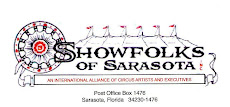
















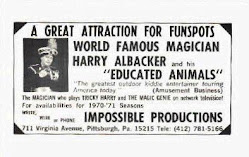

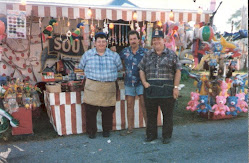




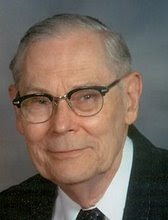
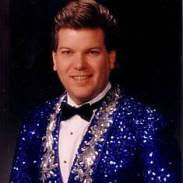






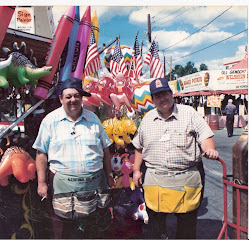
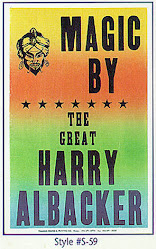











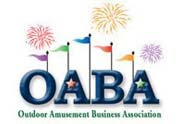



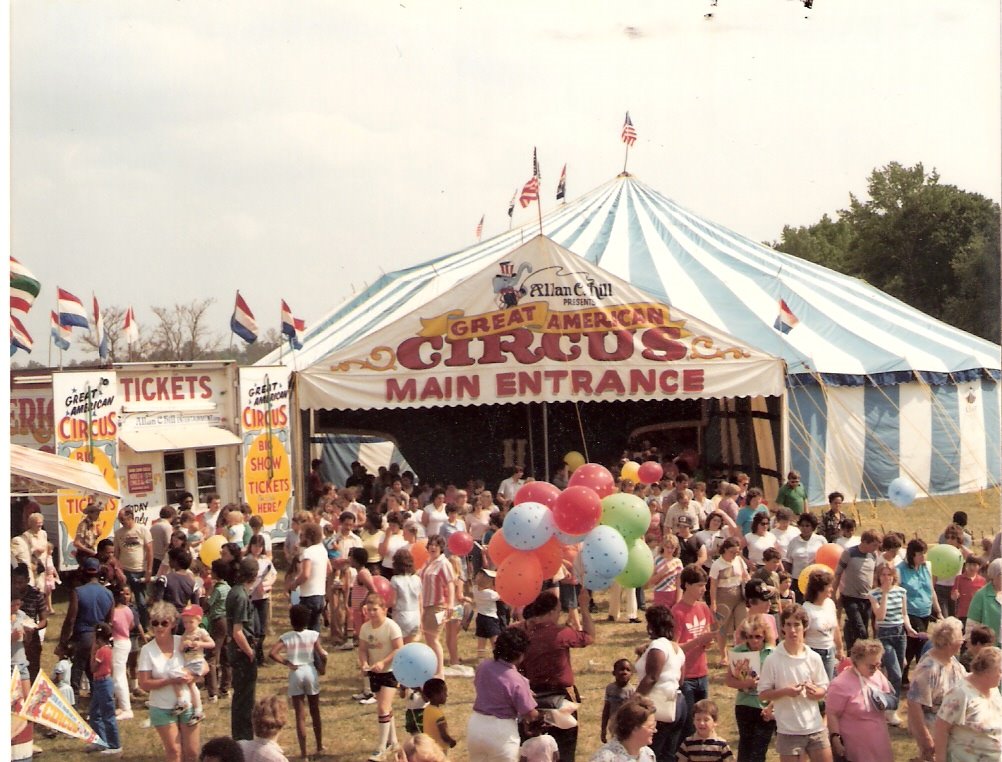









No comments:
Post a Comment